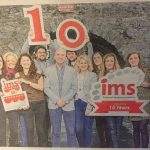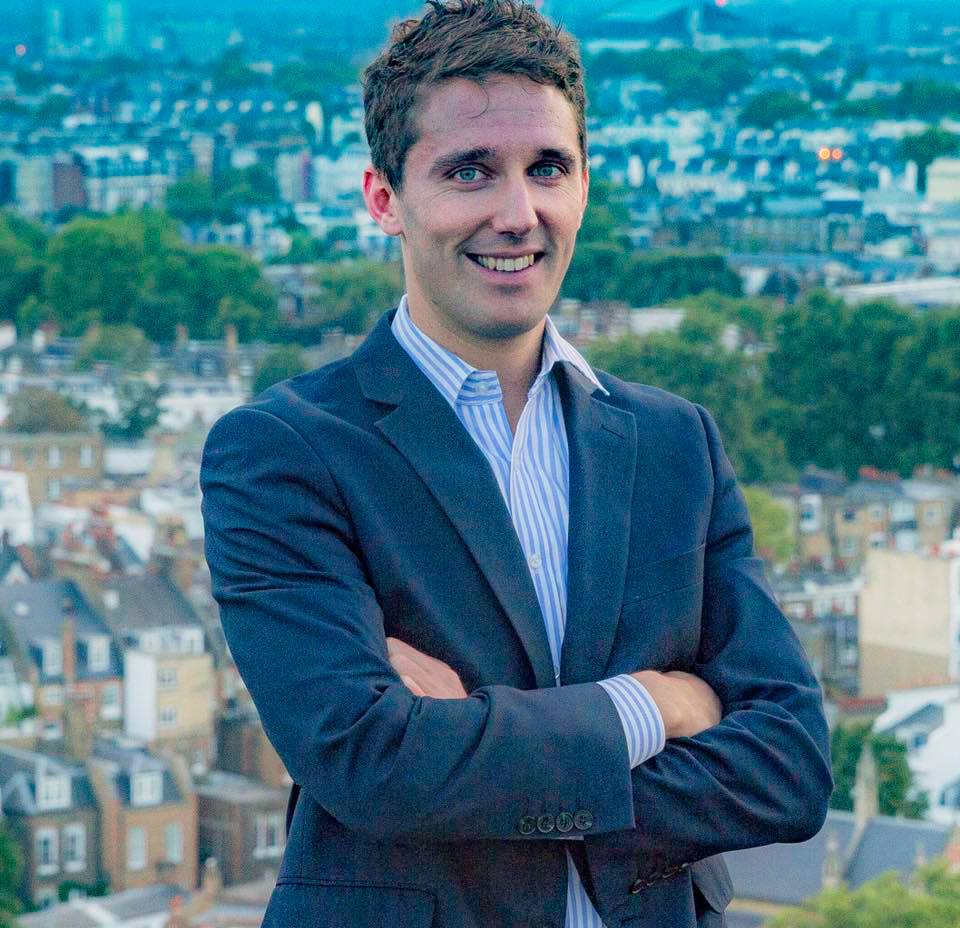In the first of our new Spotlight series, we interviewed Patrick Farrell, presently with The Wellesley in London.
To kick off, tell us a bit about your history in hotels
Originally from Claregalway, Co. Galway in the west of Ireland and son of Hugh and Josette Farrell. Patrick has worked in hotels for the past ten years. He received a diploma in International Hotel Marketing from Shannon College of Hotel Management in Ireland, paired with a Bachelor of Commerce, specialising in Marketing from National University of Ireland, Galway.
He began his first marketing based role whilst in Dubai working for Jumeirah Hotels & Resorts. He began as a Rooms Marketing Executive which involved assisting each Jumeirah hotel and resort in Dubai with rooms marketing activities, which included major revenue generating campaigns, such as Winter Flavours and Summer Flavours. He then progressed to become a Digital Marketing Executive, focusing on one hotel, the iconic Jumeirah Beach Hotel. This was at a very exciting time as social media played a big part of that role, whereas it didn’t exist a few years previously.
He then moved to London with Jumeirah, to be Marketing and PR Executive at Jumeirah Carlton Tower and Jumeirah Lowndes Hotel in Knightsbridge. I worked there for two-and-a-half years before moving to The Wellesley to lead the marketing and communications for the hotel.
Tell us about The Wellesley and your current role?
The Wellesley is known as London’s finest-boutique grand hotel located in Knightsbridge/Hyde Park Corner. The hotel is young in comparison to its long-standing neighbours, having opened in December 2012. As Marketing and Communications Manager, I am responsible for managing and delivering the day-to-day marketing and public relations activity, online and offline, for the hotel whilst being required to support the delivery of hotel revenue targets. It’s an exciting role for me, and my first independent hotel to work for in a marketing capacity.
What style/type of hotel is it?
The hotel is classed as boutique-grand. Some might find this a juxtaposition, but I find it really explains what The Wellesley truly stands for. With just 36 bedrooms, it really is a ‘boutique’ hotel, but guests experience the ‘grand’ element the minute the door is opened by our doorman. Attention to detail in the construction and finishing touches was paramount to our owner and this has served extremely beneficial to me and the wider teams, in terms of promoting what is a real unique find in London.
What are your main responsibilities when it comes to your hotel’s marketing?
I oversee the promotion and awareness of the hotel across all markets, which I often refer to as ‘reputation management’. PR is still a very important and influential channel for us so I employ an agency to attract key media from the UK and US markets. The value of a good online review from a prominent media outlet online can last a very long time so ensuring we are targeting relevant media outlets is key to us at The Wellesley. ‘Traditional’ marketing, such as print brochures and leaflets for distribution within the hotel, are still quite important to us as many of our guests and visitors like to take something with them, as a memory per se. Working with quality printers is key. I’d much rather create artwork in-house, rather than outsourcing as you save time and money. But this isn’t always possible, as you cannot beat the expertise offered by (some) agencies. I work with a digital agency to ensure our PPC and SEO efforts are performing efficiently. Social media also falls under my remit, which I am a big fan of and very protective of!
What are the biggest challenges you face when it comes to digital marketing for your hotel at present?
The largest chunk of my marketing budget is currently spent on digital activity: everything from search and display ads, selected social media advertising and also third party partnerships. I am always aiming to improve the ROI with digital spend and this is easily trackable, which makes my role justifiable!
At The Wellesley, our key source market is the Middle East, so creating relevant, compelling offers for those countries is very important. Not having the resources in place in those countries to support our marketing activity can sometimes be a challenge. For example, I do not employ a dedicated Arabic translator or team in the Middle East, so I’m potentially missing out on new audiences there. Another challenge which I sometimes face is convincing my Executive Team internally the value of digital marketing and the importance of being digital savvy and investing in the right areas.
What is your most successful social media channel for the hotel and why?
I would say Facebook is our most successful channel to date, based on the number of referrals we receive. We are active on the other main channels, (Twitter, Instagram, Pinterest, Google+ and YouTube), however, I find the targeting and scheduling options on Facebook a real winner. From a visual point of view, Instagram wins hands down, and we do maintain quite a healthy engagement rate there but as with anything, there is always room for improvement and optimisation, which reminds me of a quote in the back of my mind an esteemed General Manager told me years ago: “The largest room in any hotel is the one for improvement”.
What do you see being the biggest trend or new innovation in hotel marketing in the next 24 months?
Mobile messaging and targeting. Users (guests) are spending more and more time on their phones. At The Wellesley, we have implemented a WhatsApp reservation service, which connects guests directly to our reservations team via mobile messaging. I have found this a very popular channel with a fantastic ROI. At the end of the day it’s all about giving potential (and current) guests a choice, a convenient way to book their stay with us.
If I gave you £10,000 right now to spend on your marketing, what would you do with it?
Mobile optimisation and investing in website translation / adaptation per market. It’s so important to realise that now all users read your content the same way. Some markets prefer image-led displays whilst others, (particularly in Asia), prefer facts, which generally means straight-to-the-point text about your hotel. I would also invest more in subtle, dynamic marketing and remarketing via online channels and try to be on the top of the users’ minds when they decide to book their stay in London.
What are you currently steering clear of with regards marketing strategy or implementation?
I’m not a fan of the pushy pop-ups asking the user to fill in their details before they leave a website. Specifically, in the luxury market, we need to be very careful. In order to keep users on a site, it’s my job to devise an experiential journey on our website.
What’s your ultimate career goal?
I have some exciting projects that I’m currently working on and one big one just about to begin, after which I would love to be in a position where I am leading the marketing function across a brand and providing inspiration for the younger generation of hotel marketers. Taking all the experience I’m building up now, I aim to open my own marketing consulting agency, but I have a lot to learn until then…
- Patrick Farrell, Claregalway




